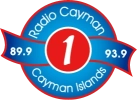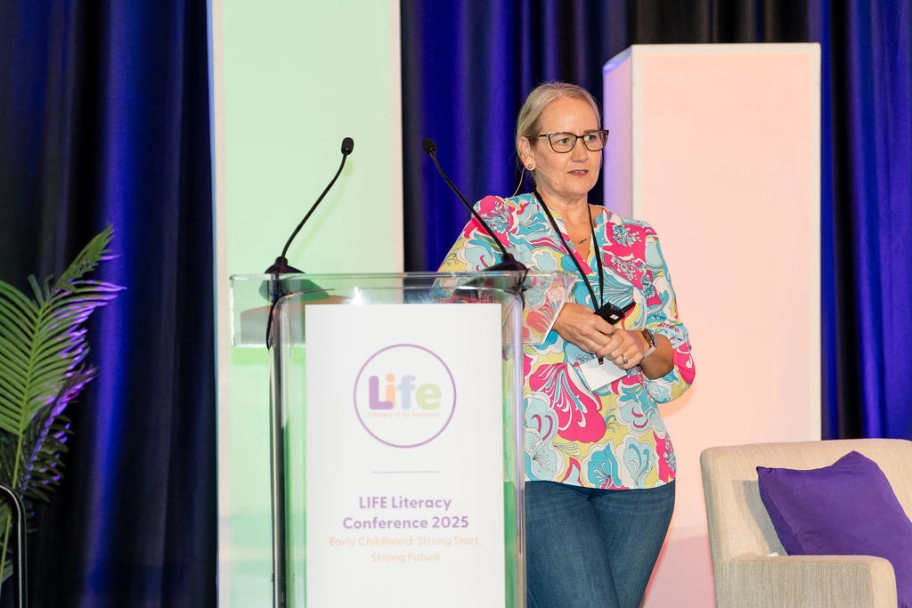New Research Presented at LIFE Conference Warns Cayman’s Youngest Learners Risk Falling Behind Without Stronger Early Childhood Support
The Cayman Islands must take urgent steps to strengthen access, quality and workforce support in early childhood education or risk long-term developmental and economic consequences, according to findings presented at the LIFE Literacy Conference, held on November 1, 2025 under the theme “Early Childhood: Strong Start, Strong Future.”
At the event, Staci Scott, Director at KPMG in the Cayman Islands presented a major new research study titled “From Play to Progress: Strengthening Early Childhood Education in the Cayman Islands”. The report assesses early childhood education in the Cayman Islands against international benchmarks and local realities.
Scott, highlighted that “notable improvements have been made in recent years” though the research and interviews conducted indicated that “challenges remain around cost, access, and availability” of ECE, among other areas.
The report’s findings show that about 59 percent of children under age 5 are enrolled in early childhood programs, close to the OECD average, but access varies by district, with Bodden Town appearing significantly underserved. The research also shows that 84 percent of enrolled children attend private centres and average monthly fees of roughly KYD$1,144 before subsidy are the highest among comparison jurisdictions. Only 42 percent of centres with inspection results received “Good” or “Excellent” ratings from the Office of Education Standards.
The report also identifies challenges in workforce training and retention. It highlights the need for coordinated investment in early years practitioners to ensure children have access to supportive early learning environments.
LIFE, which began in 2012 with a focus on improving literacy and reading outcomes in Cayman’s primary schools, has increasingly shifted attention to the early years in response to growing evidence that foundational development occurs before a child enters formal schooling. The organisation now prioritises early childhood development, recognising that a child’s learning journey begins at birth. LIFE’s work increasingly supports children from birth to age five and the caregivers and educators who shape those early years.
Dr. Shannon Seymour, who presented findings from her PhD research on Cayman’s early childhood workforce, noted that most early childhood educators are women and many live near or below the poverty line, with a majority on work permits. “Low pay and limited training opportunities deter Caymanians from entering the field and contribute to high turnover,” her research notes. “This vulnerability undermines the quality of care and learning during the most critical years of brain development.”
Seymour emphasised that birth to age 3 represents the most important period for brain development. She told attendees that inconsistent care, under-resourced classrooms and passive experiences, including excessive screen time, can hinder development. “If the early years are not supported, children face higher risks of academic struggles, behavioural challenges and later-life economic disadvantage,” she said. “Early childhood is not preparation for school. It is the foundation for life.”
LIFE Chair Woody Foster said Cayman must prioritise investment in early childhood development. “If we want a stronger Cayman tomorrow, we must invest in our children today,” he said. “Early education is not a luxury. It is a foundation for social mobility, economic opportunity and national development.”
LIFE Executive Director Erica Dell’Oglio said the study will serve as a valuable guide for LIFE’s ongoing advocacy and programme development. “We’ve spent years working directly with schools, educators, and families, so we’ve seen first-hand where the challenges and opportunities lie,” she said. “Having an independent study confirm what we’ve long understood from experience, gives powerful weight to our advocacy. This research not only validates our on-the-ground insights but also helps us focus collective efforts to expand access, strengthen support for educators, and ensure every child in Cayman has the opportunity to thrive from the very start.”
The full From Play to Progress report is available at www.lifeconference.ky.
Latest News
-
MHES announces new HSA Board members and Governance AuditHealth02 February 2026, 05:11 AM
-
Opposition Calls for Clear Roadmap on Immigration & Labour ReformsPolitics02 February 2026, 05:09 AM
-
Government Delivers on Completing Its Hurricane Melissa SupportWeather30 January 2026, 06:17 AM
-
RCIPS & CBC Conduct Day of Action in Eastern DistrictsPolice/Cou...30 January 2026, 06:17 AM
-
Honouring the Life and Service of Former MP, Austin HarrisPolitics30 January 2026, 06:16 AM


